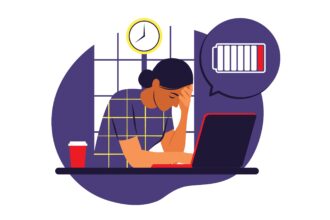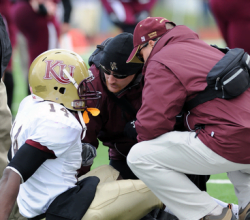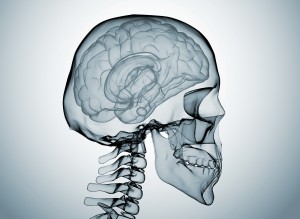Concussions have been a serious topic of conversation for several years now, as we’re learning more and more is coming to light about the impacts of seemingly minor head injuries in years to come. There has been an emphasis on exploring more, for example, about the links between childhood sports and concussions that can lead to later physical and mental health issues. As a parent, it can be especially important to have at least a general understanding of what concussions are, what the symptoms are and what the effects can be. It’s estimated that anywhere from 1.6 to 3.8 million concussions related to sports and recreation occur in the U.S. every year. Football accounts for 60% of concussions, and for females, soccer is the leading cause of sports-related concussions. There is new research occurring currently that will help better diagnose and treat concussions. For example, researchers are working on ways to accurately diagnose a concussion with a simple blood test. If you’re a parent, involved with youth sports, or personally could be at risk of a concussion, the following are some things to know.
What Is a Concussion?
A concussion is considered a mild traumatic brain injury or TBI. They’re called mild because they aren’t life-threatening, but that doesn’t tell the full story of the potential scope of the effects that can occur with a concussion, even for years to come. After someone suffers a concussion, they may lose consciousness for a brief period, but more often, this doesn’t occur. Someone might feel dazed, or as if they have a brief period of amnesia following a concussion. According to the Centers for Disease Control and Prevention, there are usually four categories into which the symptoms of a concussion might fall into. One category includes symptoms related to thinking and remembering. Then there are physical symptoms like having trouble with loud noises or bright light or having headaches. Some people who experience a concussion may have mood-related symptoms like irritability or sadness, and sleep disturbances can occur as well. Children are at particular risk for concussions because their heads are disproportionately larger than the rest of their body. In a very young child who can’t necessarily verbalize their symptoms, some of the warning signs to keep an eye on including not eating or nursing, inconsolable crying, or changes in sleeping or behavior. There are different types of concussions, and they are classified based on severity. For example, a grade 1 seizure is mild, moderate is grade 2, and grade 3 is severe. The classification depends on the severity of symptoms such as amnesia and loss of consciousness. It’s important to be aware that some symptoms may appear right away, but in other cases, it can take time for them to appear. There is a misconception that if your child has a concussion, you shouldn’t let them sleep or you should wake them up frequently. Unless a doctor tells you otherwise that can actually be counterproductive because rest is so important during healing.
What Should You Do If You Suspect a Concussion?
Whether you suspect a concussion in yourself, your child or someone else, you should seek medical attention. Sometimes you might feel like the situation is not serious enough for that, but it’s always better to be safe than sorry in a head injury situation. If a doctor believes that you or your child could have a grade 3 concussion, they will likely want to do observation. Initially, with a suspected concussion, a doctor will ask cognitive and memory questions to get a feel for the extent of the injury. A doctor may want to do more tests such as a CT scan or an MRI to eliminate the potential of a severe brain injury, and they may do other central nervous system tests as well, such as testing reflexes. If a doctor determines the concussion is mild, they will usually tell the patient to take medicines that don’t contain aspirin and to rest. Rest is an essential part of healing after a concussion. Some of the guidelines a doctor may recommend include taking a break from whatever activity led to or contributed to the concussion, such as a sport. There may also be discussions about how to prevent future brain injuries and concussions. We’re starting to learn a lot more about the cumulative effects of concussions. This means that over time, with repeated concussions you or your child might be at a greater risk of permanent disabilities, brain swelling, permanent brain damage or death.
Can Concussions Be Prevented?
Many parents are reevaluating their children’s participation in certain sports because of the risk of concussions, and especially tackle football. As well as evaluating the safety of activities, it’s essential to wear the appropriate protective gear anytime you or your child are participating in a contact sport. This can include not only football but also hockey, soccer, and boxing. There are also risks that can stem from horseback riding, skating, and snowboarding. Whatever the maximum level of protective gear that’s available and can be worn in a high-risk activity, use it.
Tips for Healing
Along with getting plenty of rest, when you or your child have a concussion, you should try to avoid too much physical activity, including even chores around the house. When your doctor gives the all-clear to return to normal activities, take it slow or have your child take it slow. You should also be aware that a concussion can slow your reaction time, so if you, as an adult, have one, you should talk about when you can drive again safely. For children, during the healing period they shouldn’t have any late nights and they should avoid high-risk activities. Your child may also need some time off school, so speak with your doctor about this. When your child has a concussion, it’s normal to be scared or anxious, but more often than not, they will be fine, and they’ll recover without any major complications. For some children, it can take longer to recover from a concussion than others, however.










